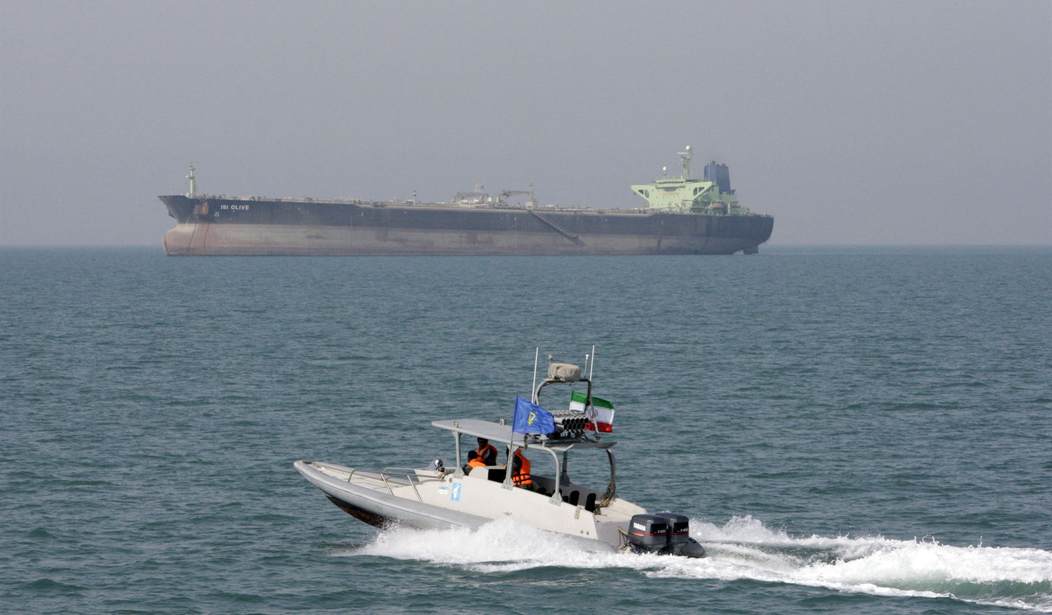A first-of-its-kind operation by the Department of Justice kicked off in April but was only officially documented recently. An international shipping company, Empire Navigation, along with a Greek maritime corporation allegedly conspired with the Iranian Revolutionary Guard Corps and the IRGC-Qods Force to ship nearly one million barrels of Iranian crude oil to China in violation of international sanctions. But the plot was thwarted when American naval units seized the tanker and arranged to have it shipped back to the United States. The scheme reportedly involved falsifying documents to disguise the origin of the oil so that it could be exported to China. Profits from the illicit sale were slated to go to fund the IRGC’s terror operations. So this was a fairly bold move, though it likely won’t do much to warm up relations between Iran and the United States. (CNN)
The US government seized nearly 1 million barrels of Iranian crude oil allegedly bound for China, according to newly unsealed court documents and a statement released by the Department of Justice on Friday.
“This is the first-ever criminal resolution involving a company that violated sanctions by facilitating the illicit sale and transport of Iranian oil,” according to the DOJ.
The Islamic Revolutionary Guard Corps, a US-designated foreign terrorist organization, allegedly shipped more than 980,000 barrels of oil, the press release stated.
Further details can be found in a statement from the Justice Department regarding this operation. It doesn’t sound as if there was any sort of “forceful seizure” taking place. The ship is owned by a Greek company, Suez Rajan Limited, and they pleaded guilty to a variety of charges related to the illegal shipment. Then the tanker was ordered to change course and head to America, which the captain voluntarily did. So the vessel never had to be boarded.
Suez Rajan Limited pleaded guilty to conspiring to violate the International Emergency Economic Powers Act (IEEPA). They were sentenced to three years of corporate probation and fined nearly 2.5 million dollars. The current disposition of the oil in the tanker is being decided in the U.S. District Court for the District of Columbia as part of a civil forfeiture action. When concluded, the funds from the sale of the oil will reportedly go to the U.S. Victims of State Sponsored Terrorism Fund.
The story doesn’t end there, however. Iran moved in an apparent push to strike back. Shortly after the seizure of the tanker in April, Iran hijacked a Panamanian tanker named the Niovi after it left Dubai and sailed for the Strait of Hormuz. That took place one week after the IRGC seized the Marshall Islands-flagged oil tanker Advantage Sweet in the Gulf of Oman. Both tankers were sailing in international waters at the time of the seizures, so Iran’s claims that the ships were confiscated for violating maritime regulations are nonsensical. These were cases of theft and millions of barrels of oil were taken.
The Strait of Hormuz is growing increasingly dangerous for commercial sea traffic, particularly when it comes to oil shipments. The IRGC uses fairly low-tech methods of attack, buzzing around the ships in what are basically oversized speedboats full of armed sailors, forcing the tanker off course, and threatening to shoot up the bridge if they don’t surrender control. The United States Navy would easily have these boats outgunned, but we don’t have enough ships in the area to cover them all. And even if we did, with tensions already running high between America and Iran, if we blow up one of their speedboats we’ll be in the middle of an international situation that could easily escalate.
And all of this news is unfolding just as we’re on the verge of agreeing to prisoner swaps with Iran. Will these developments impact that process? Something needs to be done about Iran in general and the IRGC in particular, hopefully without direct military action. But it’s a touchy situation, and thus far all the Biden administration has seemed willing to do is try to negotiate with them over their nuclear program. Iran is obviously ready to play hardball, and the United States may have to prepare to do the same before long.







Join the conversation as a VIP Member